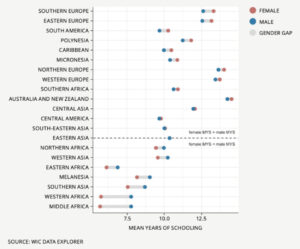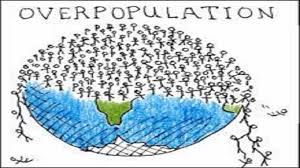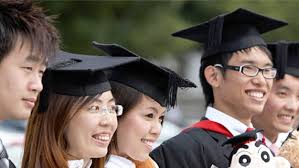What is the World Football Compassion Cup? And How will it Change the World?
Football (soccer) is the world’s biggest sport. Now it will lead the battle to ensure every child on the planet can be the best they can be.
NJ MED, an international human rights NGO organization has developed an annual football award to support the UN’s Sustainable Development Goals and their educational mission.
The award called the World Compassion Cup (WCC) is an international football competition to recognize football’s richest clubs and their supporters – on the field and off the field contribution – to their communities, country, and their social impact, by:
- demonstrating teamwork,
- goal-oriented achievement
- promoting unity, and
- bringing public awareness to others in need.
Each week, teams are ranked in their leagues, leagues cups, and international cup competitions. Teams gain three points for wins, one point for ties, and lose three points for losing. Club’s supporter performance also influence the team’s points. Three points for outstanding behavior of sportsmanship or lose three points for showing poor behavior of sportsmanship.
The World Compassion Cup’s three previous winners are Manchester City in 2018-2019, Bayern Munich in 2019-2020, and Manchester City in 2020-2021.
This year’s competition promises to be the best year yet.
Why Football?
NJ MED’s CEO/Founder, Albert Mitchell II, said, “Football touches so many lives. It’s played in over 200 countries. Boys and girls start playing at the age of 5, in villages and cities. It is an all-inclusive sport.
“It is our goal to use football and the passion it brings, to help grow communities in social change that better the lives of those who play and support it. That’s why we connect teams with their foundation’s profiles.”
Many of the world’s top clubs foundations do work in the poorest countries in Africa and Asia. It is our plan to use this as an opportunity to not only promote the sport of football but education as well.
We would like to link the club’s foundations with the UN’s International Children Day Campaign. Whose mission is to promote togetherness around the world, awareness of the problems children face in every corner of the globe, and improve the welfare for all children.
Each country celebrates this day on different dates. We hope the top clubs and their supporters can help raise funds or host events to distribute free educational tools to children in the poorest countries.
We see it as a win-win situation for the clubs and the countries they serve in promoting the support of football.
Let’s grow the Beautiful Game with a purpose to make the world a Smarter World, A Greater World.
Let the Games Begin
The 2021-2022 season.
This year the top clubs go for it: Starting with twelve clubs from the English Premier League (EPL), five Clubs from the Germany Bundesliga League, four clubs from the Spanish LaLiga, four from the Italian Serie A, two from the Franc League – Ligue 1, and one each from the Russian Premier league, the Dutch league – Eredivisie, and Portugal’s league, Liga.
Here are our predictions for the top 20 spots.
- FC Zeit Saint Petersburg, Russia, Not Ranked in 2020-2021
In preparation for this season, Zeit has preserved the core of the group that got them to winning the Russian League while adding scoring alternatives such as Sardar Azmoun and the returning Artem Dzyuba. There is a track record of winning under coach Sergei Semak making good on his talent.
TEAM: Stanislav Kritsyuk – GK, Dejan Lovren – RB, Dmitriy Chistyakov –CB,Yaroslav Rakitskiy –LB, Vyacheslav Karavaev-M, Wendel –M, Wilmar Barrios –M,, Douglas Santos –M, Malcom –F,, Sardar Azmoun – F, Artem Dzyuba –F
COACH: Sergei Semak
- Leicester City, UK, Ranked 20th in 2020-2021
Brendan Rodgers’ side’s traditional Premier League season finale — pipped to a top four finish in the final hours of the season — threatens to overshadow the reality of the season as a whole. Yes, how the table looks after 38 games is important, but that does not negate the importance of the overall picture of the season.
That isn’t enough to persuade you to pick them for the top four in the EPL , partly because there were mitigating factors in each of those seasons to explain why a Champions League qualification slot became available. Much of the “big six” was in upheaval in 2019-20, with Manchester United taking half a season to get underway. Similarly, Liverpool had a severe injury issue last season, following which a top-four finish was a great feat. And when these teams falter, Leicester is ready to take advantage. Expect the Foxes to be hot on Chelsea’s heels if their midfield crumbles or if a manager loses control of the dressing room.
TEAM: Kasper Schmeichel – GK, Ricardo Pereira – RB, Jonny Evans –CB,, Caglar Söyüncü – CB, Ryan Bertrand –LB, Harvey Barnes – M, Daniel Amartey – M, Youri Tielemans – M, James Maddison – M, Jamie Vardy – F, Kelechi Iheanacho – F
COACH: Brendan Rodgers
- AC Milan, Italy, Ranked 11th in 2020-2021
Despite keeping the majority of their starters from last season, the Rossoneri may take a step back in the coming season. The club’s form deteriorated in the second half of last year, and they swiftly dropped out of the title chase.
Despite this grim outlook, Milan’s abundance of young talent could force a Champions League finish. Brahim Diaz, a high-potential attacking midfielder, could finally break through and earn a starting spot this year. Tonali, Ballo-Toure, and Leao, among a few more young players, are all highly rated and have the potential to become elite players.
TEAM: Mike Maignan – GK, Davide Calabria – RB, Fikayo Tomori – CB, Alessio Romagnoli – CB, Theo Hernández – LB, Ismaël Bennacer – M, Franck Kessié – M, Alexis Saelemaekers –M, Brahim Díaz –M, Rafael Leão – F, Ante Rebic – F
COACH: Stefano Pioli
- Olympique Lyonnais, France, Ranked 15th in 2020-2021
When it comes to replacing leaving players, the Lyonnais hierarchy has earned the right to be trusted. Losing elite players have largely proven to be speed bumps that have little impact on the club’s overall direction, so why should a scouting system that has identified so many potential stars be unable to survive without Memphis Depay?
TEAM: Anthony Lopes –GK, Sinaly Diomande – RB, Jérôme Boateng – CB, Jason Denayer – CB, Emerson – LB, Bruno Guimarães – M, Houssem Aouar – M, Lucas Paquetá – M, Xherdan Shaqiri – M, Karl Toko Ekambi – F, Moussa Dembélé – F
COACH: Peter Bosz
- Benfica, Portgual, Ranked 14th in 2020-2021
Benfica will be the team to defeat, as they always are, and will be hurting after losing to Sporting last season. Anything less than a Primeira Liga victory is considered a failure after winning five titles in six seasons between 2014 and 2019. As a result, coach Jorge Jesus is under a lot of strain this season as he juggles off-field politics in the boardroom with the need to keep a competitive squad together.
Jesus spent a lot of money last summer, but he’s shown in the past that he can assemble a roster of pricey, skilled players and turn them into a title-winning team. He now needs to accomplish the same thing, but under far more duress. Benfica, like Porto, has been under fire from their own fans for not promoting more youth players to the first squad, such as Diogo Gonçalves, so Jesus will be expected to do the same, but with the experience of Nicolas Otamendi and Jan Vertonghen at the back.
TEAM: Odisseas Vlachodimos – GK, Lucas Verissimo – RB, Nicolás Otamendi- CB, Jan Vertonghen – CB, Alejandro Grimaldo – LB, Julian Weigl – M, João Mário – M, Rafa – M, Roman Yaremchuk – F, Darwin Núñez – F, Everton – F
COACH: Jorge Jesus
- Tottenham Hotspurs, UK, Ranked 17th in 2020-2021
It usually takes a bit for a team to adjust to a new management and a new style. Nuno’s Premier League experience could help speed things up. If Kane does depart, however, one of Nuno’s key concerns will be to replace him and his ambitions. United, City, Liverpool, and Chelsea have all made additions to their squads, and Spurs appear to be lacking in quality when compared to the other ‘Top 6′.
Spurs will be aiming for the UEFA Conference League trophy, despite the fact that it is not a high-level league.
Nuno’s squad had a reasonably good first season, winning the Conference League and having a decent run in the FA Cup.
Spurs’ inability to break down low-block defense was one of their key concerns, as they lost points to lower-level opponents. Nuno is expected to respond to this. Nuno’s teams did not sit back after taking the lead at Wolves, and the same aggressive ambition is expected at Spurs.
TEAM: Hugo Lloris – GK, Emerson – RB, Eric Dier – CB, Davinson Sánchez – CB, Sergio Reguilón – LB, Dele Alli – M, Pierre-Emile Hojbjerg – M, Tanguy Ndombele – M, Steven Bergwijn – M, Son Heung-Min – F, Harry Kane – F
COACH: Nuno Espírito Santo
- Inter Milan, Italy, Ranked 6th in 2020-2021
A summer like Inter’s would make headlines across Europe in any other season. When their transformational head coach saw the writing on the wall regarding the club’s finances, he walked out the exit door, followed by one of the best right-sided players in the world (Achraf Hakimi) and forwards (Romelu Lukaku).
Inter, to their credit, have made the best of a terrible situation by replacing the two players with Edin Dzeko’s experience and Denzel Dumfries’ Euro 2020 stardom, as well as bringing in Joaquin Correa, Hakan Calhanoglu, and promising center defender Zinho Vanheusden. Although the majority of those players, as well as new manager Simone Inzaghi, are familiar with Serie A, it is impossible to dispute that they are not a substantially worse team now than they were when the summer began.
TEAM: Samir Handanovic – GK, Denzel Dumfries – RB, Milan Skriniar – CB, Stefan de Vrij – CB, Federico Dimarco – LB, Nicolò Barella – M, Arturo Vidal – M, Marcelo Brozovic – M, Ivan Perisic – M, Lautaro Martínez – F, Edin Dzeko – CF
COACH: Simone Inzaghi
- Barcelona FC, Spain, Ranked 5th in 2020-2021
Is there a transfer window in recent history that has been more disruptive than Barcelona’s wretched few months? Last season, they had an offensive centered on Lionel Messi, Antoine Griezmann, and Ousmane Dembele. Now that the former two are gone and the latter is injured, Ronald Koeman might field assaults centered on Luuk De Jong, Martin Braithwaite, and Memphis Depay. None of them are awful players, and the latter appears to be a great buy after his Lyon deal expires, but the mighty have fallen.
But it’s not just Messi and Griezmann who have left. It’s the equivalent of an NFL team losing their standout quarterback and wide receiver duo. Consider them squandering a first-round choice on a song. Barcelona could have done the same with Moriba if they had been unable or unable to match the wage demands of one of their most promising young players.
TEAM: Marc-André ter Stegen – GK, Sergiño Dest – RB, Eric García – CB, Gerard Piqué – CB, Jordi Alba – LB, Pedri – M, Frenkie de Jong – M, Sergio Busquets – M, Sergi Roberto – M, Ansu Fati – F, Memphis Depay – F
COACH: Ronald Koeman
- Borussia Dortmund, Germany, Ranked 18th in 2020-2021
The departure of Jadon Sancho was virtually baked in, so evident was it that the narrative of last summer would be wrapped up soon. Dortmund already had substitutes in their team, ranging from Giovanni Reyna to Thorgan Hazard. There’s plenty of attacking potential to work with when Donyell Malen is added to the mix.
The installation of a trustworthy No. 1 may be the most significant of all. If Gregor Kobel, a former Stuttgart goalkeeper, proves to be that, the days when Roman Burki and Marwin Hitz were true headaches between the posts will be a distant memory. Last season, the Swiss goalkeeper made over 100 saves in the Bundesliga, conceding somewhat less goals than he should have, according to Opta’s goals prevented metric. He could be a valuable addition to Marco Rose’s team.
TEAM: Gregor Kobel – GK, Thomas Meunier-RB, Mats Hummels – CB, Manuel Akanji – CB, Raphaël Guerreiro – LB, Jude Bellingham – M, Axel Witsel – M, Emre Can – M, Thorgan Hazard – M, Erling Haaland – F, Marco Reus – F
COACH: Marco Rose
- Napoli, Italy, Ranked in 16th in 2020-2021
Napoli missed out on the top four and a place in the 2021-22 Champions League by a single point last season, despite only losing one of their last 16 Serie A games and finishing the season on a nine-match undefeated streak. A 1-1 tie with Verona at home on the penultimate day of the season confirmed their fate, as they relinquished a lead at home.
Given the summer’s financial limits, returning to the top four will be extremely difficult this season. Although a title challenge appears unlikely, the Azzurri are one of the early favorites for the Europa League and could have a strong showing there.
TEAM: David Ospina – GK, Giovanni Di Lorenzo – RB, Kalidou Koulibaly – CB, Amir Rrahmani – CB, Mário Rui6 – LB, Eljif Elmas – M, Fabián Ruiz – M, Piotr Zielinski – M, Lorenzo Insigne – F, Victor Osimhen – F, Hirving Lozano – F
COACH: Luciano Spalletti

- Ajax, Netherlands, Ranked 3rd in 2020-2021
A pleasant summer in Amsterdam, when none of Erik ten Haag’s best and brightest were chosen. The loss of Brian Brobbey for nothing is unfortunate, but given what the transfer window may entail for Ajax, it is not a major setback. With the arrival of highly rated young forward Mohamed Daramy from Copenhagen, the Dutch champions may have reason to hope they have improved their assault.
TEAM: Maarten Stekelenburg – GK, Noussair Mazraoui – RB, Jurriën Timber – CB, Lisandro Martínez – CB, Daley Blind – LB, Ryan Gravenberch – M, Edson Álvarez – M, Dusan Tadic – M, David Neres – F, Sébastien Haller – F, Antony – F
COACH: Erik ten Hag
- Real Madrid, Spain, Ranked 10th in 2020-2021
They should be praised for both what they did and what they didn’t do. Not signing Kylian Mbappe is generally not a wise course of action, but if it means paying one of the largest transfer fees in history for a player you can sign to a pre-contract agreement on January 1, then it is by far the better course of action, even if it appears to be PSG’s intransigence rather than Madrid’s shrewd dealings that has led them there.
Away from Mbappe, the situation is a little more complicated. Carlo Ancelotti’s defense has been slightly weakened by his decision to replace Sergio Ramos and Raphael Varane with David Alaba and Eder Militao (together with the returning Granada loanee Jesus Vallejo). When there were so few other periphery players with significant worth in the present market, cashing in on Martin Odegaard was definitely the best move.
Eduardo Camavinga may out to be the most important addition to the window. With clubs all over Europe waiting for his Rennes contract to expire next summer, Madrid snatched him up for a six-year deal worth roughly $35 million. Despite his struggles last season, he is still an 18-year-old France international who has the potential to be a crucial cog in the Santiago Bernabeu midfield for a decade.
TEAM: Thibaut Courtois – GK, Dani Carvaja – RB, Nacho – CB, Éder Militão – CB, David Alaba – LB, Eden Hazard – M, Casemiro – M, Toni Kroos – M, Luka Modric – M, Karim Benzema – F, Vinícius Júnior – F
COACH: Carlo Ancelotti
- Juventus, Italy, Ranked 4th in 2020-2021
How do you evaluate the departure of one of the finest players in the world when his company was so eager to let him go? Juventus will be without a top-flight finisher after Ronaldo’s departure, and Moise Kean and Alvaro Morata will not be convincing quick alternatives. Still moving forward from three disastrous seasons with their No.7, they now have more options for the future and have begun a long-overdue reconstruction.
Luca Pellegrini might replace the ageing Alex Sandro at left back, and Manuel Locatelli will bring elan to a midfield that has been a shell of its former self. Meanwhile, if scouting reports on Kaio Jorge are accurate, Juventus may not have to wait long to find a talismanic post-Ronaldo striker.
TEAM: Wojciech Szczesny- GK, Mattia De Sciglio – RB, Giorgio Chiellini – CB, Matthijs de Ligt – CB, Alex Sandro – LB, Paulo Dybala – M, Weston McKennie – M, Manuel Locatelli – M, Juan Cuadrado – M, Álvaro Morata – F, Federico Chiesa – F
COACH: Massimiliano Allegri
- Atletico Madrid, Spain, Ranked 13th in 2020-2021
Atletico Madrid have made three high-quality signings to Diego Simeone’s side in order to improve on last season’s title win, with just the increasingly peripheral option Saul departing. Rodrigo De Paul brings a level of finesse and propulsion to the midfield that Saul lacks, but this team appears to have made significant strides forward.
Matheus Cunha’s arrival provides Simeone with a dribbling threat who can also generate fouls, while Antoine Griezmann’s return on loan with a $47 million buy obligation next season appears to be a coup. If the Frenchman is half the player he was when he departed in 2019, this is a fantastic deal for Atletico, who paid $142 million for him in the summer of 2019. With Joao Felix remaining at the club, this should be a strong offense capable of going all the way in the Champions League.
TEAM: Jan Oblak – GK, Mario Hermoso – RB, Stefan Savic – CB, Renan Lodi – CB, Kieran Trippier – RB Yannick Carrasco – M, Koke – M, Thomas Lemar – M, João Félix – F, Luis Suárez –F, Antoine Griezmann – F
COACH: Diego Simeone
- Manchester United, UK, Ranked 12th in 2020-2021
Manchester United finished the transfer window with two additions that they really needed and one that they most likely didn’t. Even so, it helps when the latter is one of the game’s best pure scorers. You might be able to get by without Cristiano Ronaldo if you have Edinson Cavani on your team, but there will undoubtedly be games that the latter will win for you.
Nonetheless, their draw with Southampton and unimpressive win over Wolverhampton Wanderers highlighted the underlying faults at the heart of this United team, which still lacks a dominant midfielder. They’ll keep an eye on Declan Rice, but they could have used a more immediate signing to fit into Ole Gunnar Solskjaer’s 4-3-3 blueprint.
TEAM: David de Gea – GK, Aaron Wan-Bissaka –RB, Raphaël Varane –CB, Harry Maguire – CB, Luke Shaw –LB, Bruno Fernandes – M, Paul Pogba – M, Nemanja Matic – M, Mason Greenwood – M, Marcus Rashford – F, Cristiano Ronaldo – F
COACH:Ole Gunnar Solskjær
- Chelsea, UK, Ranked 9th in 2020-2021
Last season, the European champions had a void in their lineup. They addressed it in the most remarkable way possible with the purchase of Romelu Lukaku, even if his return to Stamford Bridge does serve as a monument to Chelsea’s incapacity to recognize potential early in their careers.
With the addition of Saul Niguez on loan from Atletico Madrid, Thomas Tuchel now has one of Europe’s most fearsome midfield quartets; the same could be said for Thomas Tuchel’s possibilities at center back if Jules Kounde had been obtained. He does, however, have plenty of choices in that position, as he does throughout the pitch. It’s even more astonishing that this was accomplished while earning a profit thanks to the sales of Tammy Abraham to Roma, Kurt Zouma to West Ham, and a slew of other periphery players (some of whom, like Victor Moses, you’d be forgiven for being surprised were still technically Chelsea goods)
TEAM: Édouard Mendy – GK, Reece James – RB, Thiago Silva – CB, Antonio Rüdiger – CB, César Azpilicueta – LB, Kai Havertz – M, Jorginho – M, N’Golo Kanté – M, Mason Mount – M, Timo Werner F, Romelu Lukaku – F
COACH: Thomas Tuchel
- Manchester City, UK, Ranked 1st in 2020-2021
They aren’t the only ones that think this way. City really don’t need a striker as much as people think — Ferran Torres is doing a job that Gabriel Jesus and Kevin De Bruyne could do as well — but it’s still great to have a player with Premier League experience leading the line. It’s also good to have a player with the same creative spark as Jack Grealish, but Pep Guardiola had a lot of players in his position that were similar. While others have surged forward, the English champions are likely to stay there.
TEAM: Ederson – GK, Kyle Walker – RB, Aymeric Laporte- CB, Rúben Dias – CB, João Cancelo – LB, Bernardo Silva – M, Rodri – M, Kevin De Bruyne – M, Raheem Sterling – F, Gabriel Jesus – F, Jack Grealish – F
COACH: Pep Guardiola
- Liverpool, UK, Ranked 19th in 2020-2021
Simply getting back all of the players who were injured last season should help Liverpool become a more potent force, while adding Ibrahima Konate to their defensive choices strengthens that area of the pitch, with the Frenchman competing for minutes against Joe Gomez and Joel Matip. Many questions have been raised in the wake of Georginio Wijnaldum’s departure, although the emergence of Harvey Elliott and Curtis Jones has lessened the impact.
The largest source of concern for Jurgen Klopp could be further up the pitch, where there is a lack of depth. Sadio Mane and Mohamed Salah will at the very least miss the Africa Cup of Nations, while Roberto Firmino is expected to miss the tournament owing to a hamstring injury. Diogo Jota can fill the void for one of them, but not for two or more. Liverpool appears to be a bright spot on the horizon.
TEAM: Alisson – GK, Trent Alexander-Arnold – RB, Virgil van Dijk – CB, Joël Matip – CB, Andy Robertson – LB, Curtis Jones – M, Fabinho – M, Jordan Henderson – M, Sadio Mané – F, Roberto Firmino – F, Mohamed Salah – F
COACH: Jürgen Klopp
- Paris Saint Germain, France, Ranked 7th in 2020-2021
Much of the adoration on social media was a little excessive for one of the few clubs that can afford the kind of exorbitant wages that allow them to sign Gianluigi Donnarumma, Sergio Ramos, Georginio Wijnaldum, and Lionel Messi without having to pay a fee. There is no such thing as a free move, after all. However, no other team has made quite the same leap across the pitch as PSG.
Despite how impressive last season’s Champions League run was, it sometimes felt like it was all about Neymar and Kylian Mbappe. This side now has quality all over it: more world-class talent up top, a midfield that isn’t wholly reliant on Marco Verratti’s fitness, and a defense with experience. It will be some time before Mauricio Pochettino can turn that group into a coherent entity, but no galaxy of stars glows brighter.
TEAM: Gianluigi Donnarumma – GK, Achraf Hakimi – RB, Sergio Ramos – CB, Marquinhos – CB, Abdou Diallo – LB, Marco Verratti – M, Idrissa Gueye – M, Georginio Wijnaldum – M, Neymar – F, Lionel Messi – F, Kylian Mbappé – F
COACH: Mauricio Pochettino
- FC Bayern Munich, Germany, Ranked 2nd in 2020-2021
Bayern Munich had a somewhat unimpressive window in which they only replaced two long-term mainstays of their defense, Jerome Boateng and David Alaba, with Dayot Upamecano and only recruited Marcel Sabitzer, a former RB Leipzig comrade. Their starting XI is still excellent, but Julian Nagelsmann must be aware that in crucial places, he is only a few injuries away from facing truly difficult situations.
Bayern could have done more if they wanted to compete with English clubs and PSG in the later stages of last season’s Champions League
TEAM: Manuel Neuer – GK, Alphonso Davies – RB, Dayot Upamecano – CB, Niklas Süle – CB, Lucas Hernández – LB, Serge Gnabry – M, Marcel Sabitzer – M, Joshua Kimmich – M, Thomas Müller F, Robert Lewandowski – F, Leroy Sané – F
COACH: Julian Nagelsmann





